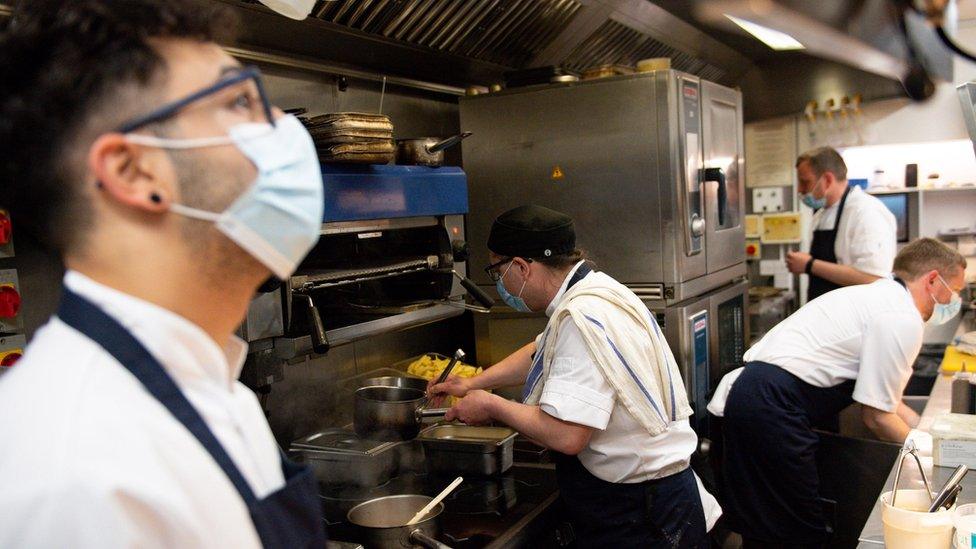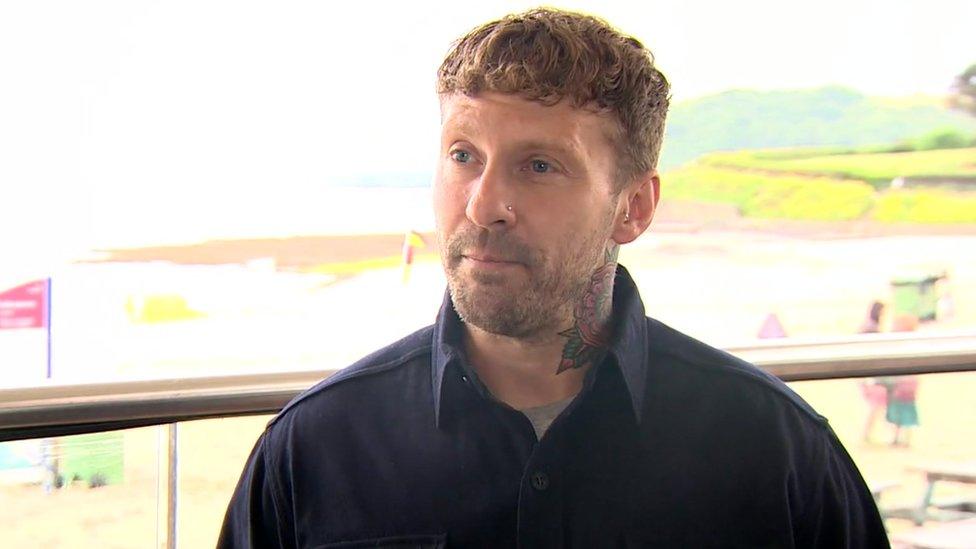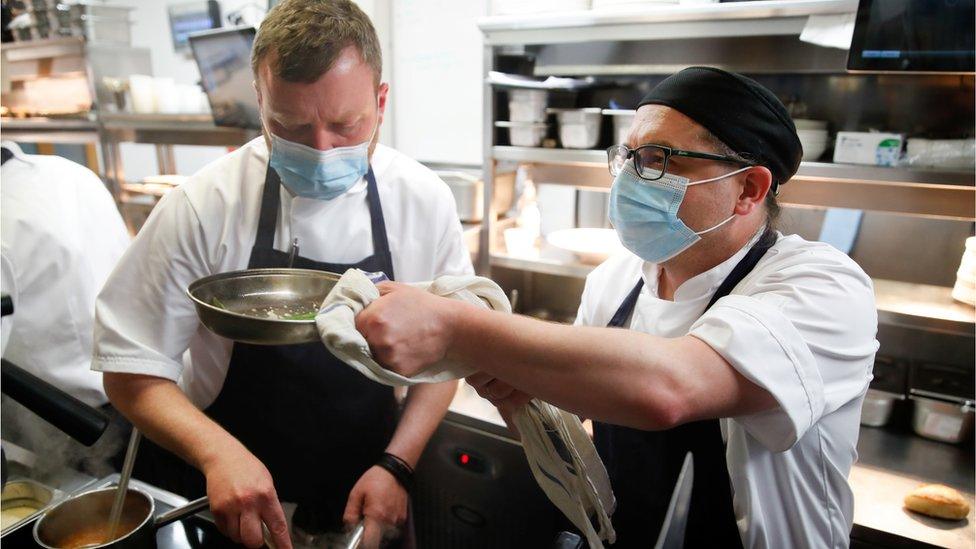Michelin-star restaurant stops serving lunch due to lack of staff
- Published

David Moore said Brexit was a major factor in staff shortages
A Michelin-star restaurant has said it will no longer open at lunchtimes due to a shortage of staff.
David Moore, the founder of Pied à Terre in London, said he decided to halt the restaurant's lunchtime menu to "preserve" his depleted workforce.
"If I slog them to death, in two weeks' time, I won't have a restaurant," he told the BBC.
Mr Moore is the latest of several hospitality business owners to raise concerns over staff shortages.
"You struggle through everything that we have had to struggle through with Covid, and then you come back and you get another kick in the teeth," said Mr Moore.

Waiters and waitresses are said to be short supply
As the UK economy emerges from the effects of the pandemic, several industries have reported shortages of staff, with UK job vacancies hitting their highest level since March 2020.
The hospitality sector has been hit harder than most, having to cease trading during lockdowns and operating under tight restrictions.
It has led to many staff being placed on furlough, which has prompted some to leave the profession. Industry body UK Hospitality has said waiting staff and chefs are in particular demand.
Restaurateur Mr Moore said 800 people applied for a receptionist role in November 2020, but he received just seven responses when he re-advertised for the role three weeks ago, and no-one showed up to an interview.
He said higher wages were "still not getting the eyeballs" on advertisements.
"I don't know anybody who is not looking for a kitchen porter," he added.

Staff in the hospitality industry often work long hours
Mr Moore said Brexit was "definitely the biggest" factor behind staff shortages, and he said the "heartbeat" of the hospitality industry was "young kids" coming from abroad to work in restaurants and bars to gain life experience and new skills.
"[The government] don't realise the huge commodity we have that they have excluded us from, that keeps this industry moving more than anything else," he said.
He said before the pandemic, just three out of his 30-strong workforce were British. His restaurant currently has 12 staff.
He said some workers who were furloughed during lockdown had moved back to their home nations and decided not to come back to the UK.
"Anecdotally, I have a lot of pals saying they are opening up restaurants and they are expecting their 18 employees to come back and only 12 turn up," The Pied à Terre founder said.
"They don't say anything because they don't want to lose their furlough, so they don't mention anything until the last minute."

Mark Agnew manages Gylly Beach Café
Mark Agnew, manager of Gylly Beach Cafe in Falmouth, Cornwall, said he will close every Monday and Tuesday due to staffing shortages.
"The main reason is a severe lack of trained professional chefs, [and] trained front of house," he said.
"There seems to be a national crisis that we are now feeling the effects of. Brexit I'm sure is a factor within this. Undoubtedly Covid and the continual lockdown, too."
Before Brexit a lot of the UK's hospitality workforce was made up of workers from overseas, including from the EU, but hundreds of thousands of foreign workers have left the UK in 2020 and it is unclear whether they will return.
According to UK Hospitality, 1.3m foreign workers left the UK during the pandemic.
Kate Nicholls, chief executive of UK Hospitality, said labour shortages appeared to be a "perennial problem" which had been "aggravated further by many foreign workers not returning to the UK, either because of travel restrictions or their ability to resume work in the UK".

Itsu boss Julian Metcalfe said the food chain's "young European chefs" had "now sadly all disappeared" because "they are not allowed in".
Mr Metcalfe said there were many reasons for staff shortages, but that Brexit posed a "long term" issue.
Mr Moore echoed calls by Mr Metcalfe for the government to grant 18-month or two-year work visas to people wanting to work in hospitality in the UK.
A government spokesman said it had "implemented an unprecedented package of measures to support businesses" during the pandemic and added it was working with UK Hospitality to "better promote jobs in the sector".
"We want employers to focus on training and investing in our domestic work force, rather than relying on labour from abroad. Employers should focus on getting people in the sector who are benefitting from the furlough scheme back to their roles when restrictions end," a statement added.
- Published11 June 2021

- Published28 May 2021

- Published23 May 2021

- Published18 May 2021
